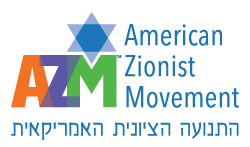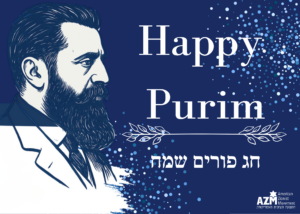After the Holidays is Now
 The expression “after the holidays” connotes the period following the holidays in the month of Tishrei, when the work week goes back to its regular routine. “After the holidays” is a very common and useful phrase.
The expression “after the holidays” connotes the period following the holidays in the month of Tishrei, when the work week goes back to its regular routine. “After the holidays” is a very common and useful phrase.
The holidays are a sort of time-out. A period that transcends time, in which a person becomes introspective and concentrates on himself and his family. The time for action and creativity, and the time of renewal comes “after the holidays.”
These three words have become a reason and explanation for the “tradition” that has evolved over the years, whereby there is a period during which important meetings are postponed, decisions are not reached, and ideas remain on paper.
We use the phrase ‘after the holidays’ to project the present in our lives to a particular point in the future, and so for many years, the phrase “after the holidays” has become an expression for pushing things off. On the other hand, it also has become an expression of renewal, as written by the late songwriter, Naomi Shemer, in her song “Renewal”:
“After the holidays, everything will be renewed.
Ordinary days will return…”
And the late Ehud Manor in his song “After the Holidays”:
“After the holidays
We will correct the mistakes
And start from the beginning”
After the holidays is already here. We have turned the clock back one hour and this is an opportunity to remember the ideas and tasks we have put off, to rest for a moment, to gather our strength and continue at the place we left off before the holiday began.
We can use this time for introspection, maybe with a different outlook on things, on goals, directions and paths we are on, to bring about an awakening, added motivation and new life and to continue with greater strength after the holidays.
We have said farewell to the year that has passed. It will not return, and it will join the previous year before it. We will remember the past two years, as good ones. However, these years have also included a lot of effort, distress and difficulties, but what we have accomplished will grow and become in our memory blessing, greatness and goodness.
We have reached the “after the holidays” period, packed with positive energy that we have amassed during the first two years, and the organization’s employees and managers are imbued with team spirit and a sense of mission. We are all ready to move forward, to revitalize things, to renew and become renewed.
In this way, we will welcome the new year with a sense of happiness and satisfaction, giving special meaning to the continuum of the coming days and added significance to simple everyday activities.
Following the last Zionist Congress, when we embarked on a path of renewal and revitalization at the World Zionist Organization, we adopted a number of missions and challenges that are based on classic Zionist goals, which have yet to be completed, while updating and adapting them to our time and place.
At the top of the list is promoting aliyah from prosperous countries as part of the ‘Habaita’ Program. Olim making aliyah of their own free choice, from a sense of Zionism and ideals, where there is no Zionism without aliyah. That is its realization.
We are ‘cultivating Zionism’ in order to develop and strengthen Zionist awareness and education in the Diaspora, through ‘Israel Families in the Community’, ‘Batei Am’, encounters between youth from the Diaspora and the Galilee and Negev, etc. We have assumed the responsibility of strengthening and cultivating the Hebrew language as the language of the Jewish people. This is the language that builds Jewish and Zionist identity. We have taken upon ourselves to lead the struggle against rising anti-Semitism. We are ‘connecting’ with hundreds of thousands of Israelis living in the Diaspora and the Russian-speaking community, bringing them Hebrew culture and language and Zionism.
We have also accepted the responsibility for engaging in Zionism in the State of Israel as well, based on the idea that the country is not a goal, rather a tool for something much bigger: creating a model ethical society, known for equality and justice, integrity and morality, “a light among nations” as envisioned by the prophets.
As the years go by, and we approach Israel’s 65th year of independence, it becomes ever clearer that we cannot live in the State of Israel without the ‘good old’ Zionism. Only ideological Zionist commitment can ensure that young families won’t pack their bags and leave in times of trouble.
As our reality here in the Middle East becomes more complex, it becomes obvious that Zionism is critical in order to provide meaning to our existence as a Jewish State, and it ensures that we will not stop believing and convincing others that the State of Israel can and will be better, more humane, civilized, enlightened – a country that demands justice, tolerance, and respect for others.
Through the Rural Settlement Division, we work to settle the length and breadth of the land of Israel through ‘Culture for Israel’, we strengthen cultural life and enrich the periphery. We assist the Herzl Center and the Zionist Council, in order to create a younger generation that will be imbued with belief and Zionist values, and which will foster leadership that will assume the responsibility for national missions.
Yes, since the Congress, we have witnessed success in our endeavors, and significant indicators of young people returning to the Zionist movement have been seen and our reputation has improved. We need to bring this outcome to public attention this year, convince and enlist as many Jews, as individuals and groups, youth and adults, in communities and organizations, in Israel and the Diaspora. We will do this by gathering together – at conferences small and large, international and regional, according to topic and sector, in Israel and overseas, while continuing the momentum in implementing all we have begun.
“After the holidays” – how many times have we used those words without noticing how we perceive or even disparage the dimension of time?
Before Rosh Hashanah, we held an educational tour in Europe – ‘Leadership Looks Ahead to the Future’ – in the steps of Theodore Herzl, which was very successfully organized by the Department for Activities in the Diaspora. We were once again awed by Herzl’s amazing personality and enormous contribution. Most of all, we were impressed by how he did all this is such a short period of time.
All of Herzl’s activity, from the time he realized that the only solution to the Jewish problem was a Jewish state, and until his death, took place during a period of less than nine years. This single man managed to accomplish so much in such a short period of time! His actions were essentially the cornerstone for the founding of the State of Israel, reminiscent of the words of Victor Hugo: “As short as the time is, it’s enough to change everything.”
We must also see this subject as part of Herzl’s heritage.
“Time travels, because that is what time is supposed to do,” sings Ehud Banai, one of Israel’s contemporary young musicians. Time waits for no man. And just as we must properly and optimally utilize our budgets, we must also not waste or lose time. Only recently, we saw in the Olympics the value of a millisecond.
Therefore, my friends, we will adopt the expression “after the holidays” in order to work with greater strength and effort to move with the pace of time, in order to promote all the challenges and tasks that are gaining momentum and stability, along with creative renewal and innovation. This is reflected in the verse from Ethics of our Fathers: We must complete the work, and in any event, we are not free to ignore it.
Yours,




